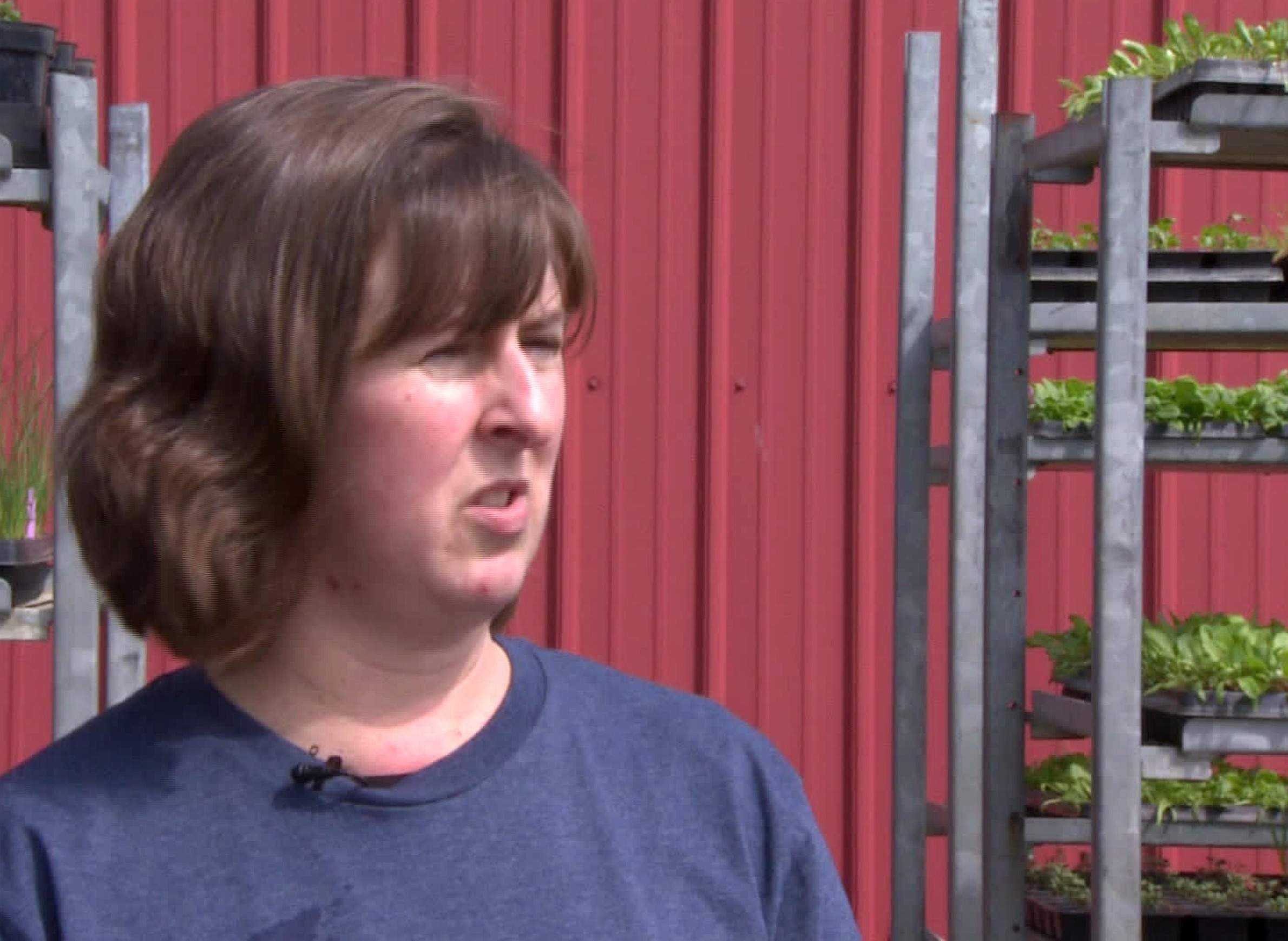
Becky Breda is a co-owner of Emerald Meadows farm in Columbus, which sells its produce to three school districts in south-central Wisconsin.

Becky Breda is a co-owner of Emerald Meadows farm in Columbus, which sells its produce to three school districts in south-central Wisconsin.
The concept of farm to school — improving nutritional options and expanding educational opportunities for students through agriculture — has an inherently local character. Districts seeking to serve fresh produce in their school meals and individual educators looking to introduce students to gardening need to make connections with nearby farmers and others involved in producing and processing food in order to put their ideas into action.
Farm-to-school initiatives are fairly widespread in Wisconsin, with one count by the U.S. Department of Agriculture finding that they reached more than half a million students around the state in the 2013-14 school year. These programs take a wide variety of forms, and there is not a single road map for developing curriculum or sourcing a new menu item.
At the same time, though, there isn't necessarily shared understanding about the logistical complexities of building a farm-to-school project from scratch. Educators may not comprehend what it takes for local farms to get their products to market, while at the same time growers may not know the needs of school cafeterias.
Farm-to-school advocates and NGOs focused on local food systems share knowledge about what it takes to build connections between farmers and educators, and in Wisconsin, the state supports these efforts through work by staff at the Department of Public Instruction and Department of Agriculture, Trade and Consumer Protection. A farm-to-school coordinator position at DATCP is being eliminated in the proposed 2017-19 state budget. People who have been involved in farm-to-school programs say the statewide perspective of this role is valuable to their work.
On the April 14, 2017 edition of Wisconsin Public Television's Here And Now, anchor Frederica Freyberg spoke with WisContext associate editor Scott Gordon about the status of farm-to-school programs in the state and the proposed budget.
Here And Now also spoke with Tim Zander and Becky Breda, owners of Columbia County organic farm Emerald Meadows, about selling produce to three school districts. An advocate for local food systems and farm-to-school programming, Breda shared her perspective on the DATCP coordinator position, which is currently unfilled and was budgeted for about $133,000 over the previous biennium.
"If we want to see the program expand beyond just a few districts that each farmer might be working with and see it have more impact across the state," she said, "then we need somebody in that position who can leverage other agencies and other groups, you know, to get this local produce out into other institutions."
Spokespersons for DATCP and Governor Scott Walker's office say the state will continue to work on farm-to-school efforts through the DPI and federally funded programs.